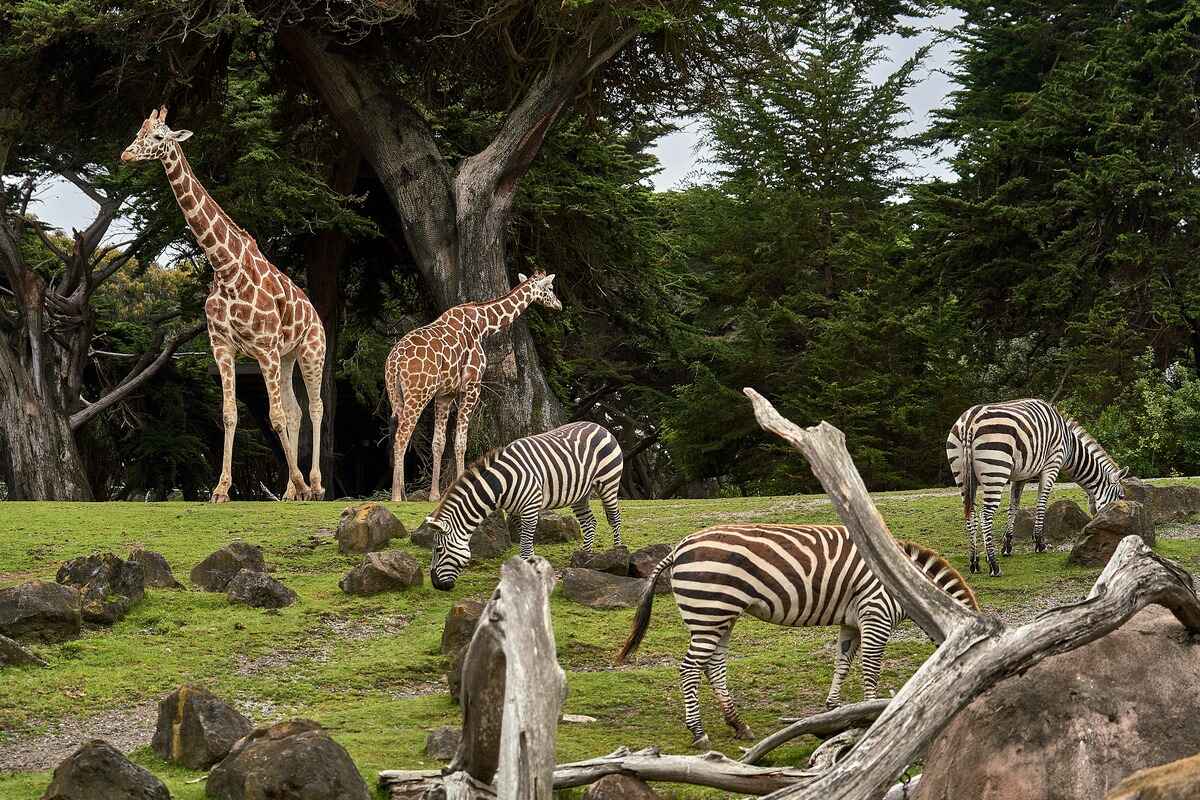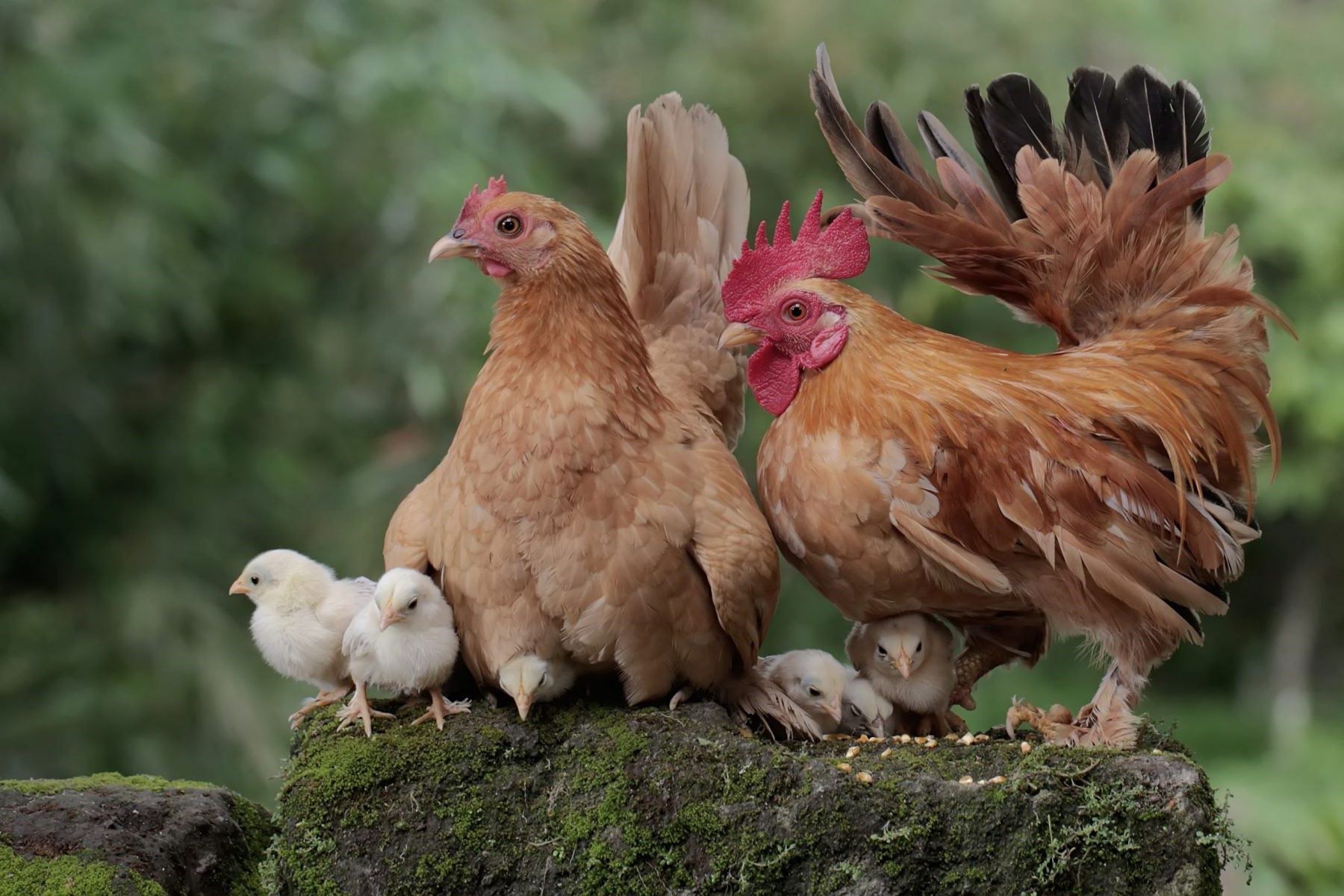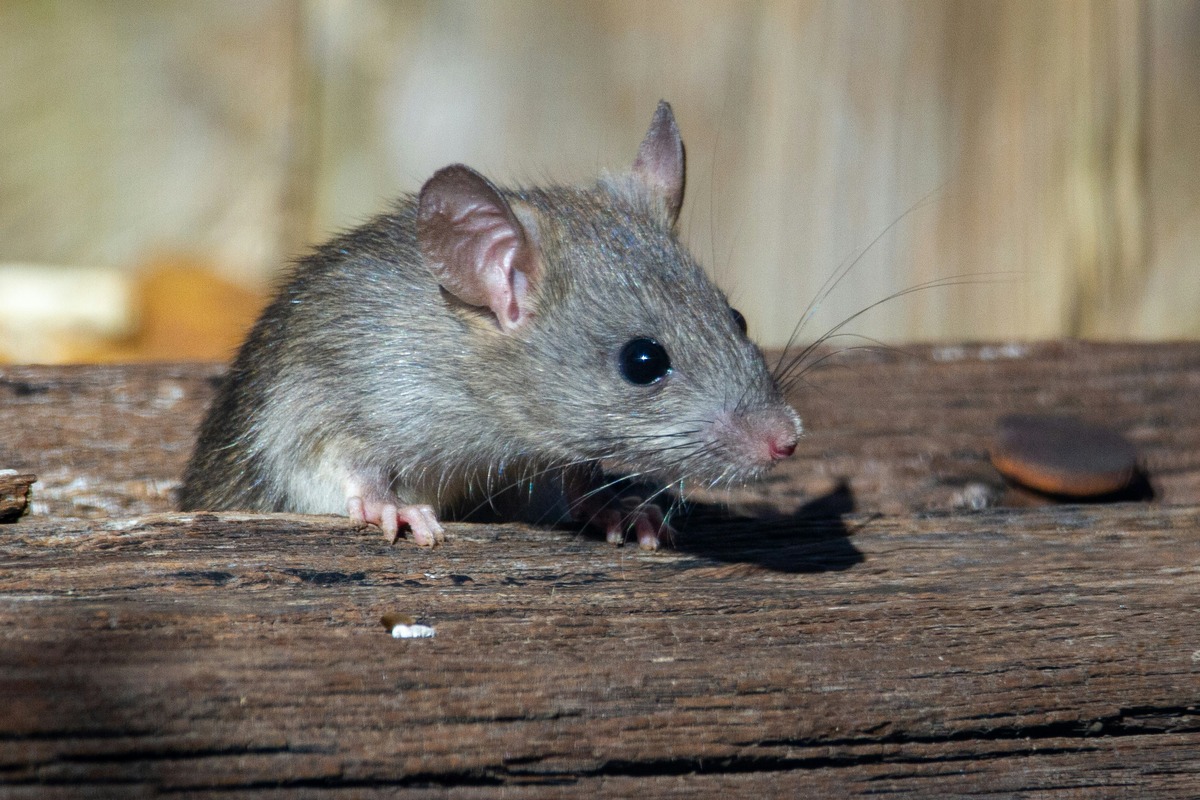Home>Science>The Ultimate Ranking Of Animal Intelligence: From Genius To Not-So-Smart!


Science
The Ultimate Ranking Of Animal Intelligence: From Genius To Not-So-Smart!
Published: January 27, 2024
Discover the fascinating world of animal intelligence in this comprehensive ranking. From genius to not-so-smart, explore the science behind animal cognition.
(Many of the links in this article redirect to a specific reviewed product. Your purchase of these products through affiliate links helps to generate commission for Noodls.com, at no extra cost. Learn more)
Table of Contents
Introduction
Welcome to the intriguing world of animal intelligence! Have you ever pondered over the remarkable cognitive abilities of creatures that share our planet? From the awe-inspiring problem-solving skills of certain species to the endearing behaviors displayed by others, the spectrum of animal intelligence is as diverse as it is fascinating.
In this comprehensive exploration, we will delve into the captivating realm of animal cognition, shedding light on the remarkable mental capacities exhibited by various creatures. As we embark on this enlightening journey, we will uncover the awe-inspiring feats of the smartest animals, gain insight into the average intelligence of many species, and discover the endearing quirks of those deemed not-so-smart.
Prepare to be captivated by the astonishing tales of animal intellect that will challenge your perceptions and leave you marveling at the wondrous capabilities of our fellow inhabitants on this planet. So, let's embark on this enthralling adventure, as we unravel the ultimate ranking of animal intelligence, from genius to not-so-smart!
The Smartest Animals
-
Chimpanzees: Renowned for their exceptional problem-solving skills and advanced social behaviors, chimpanzees have long been celebrated for their remarkable intelligence. These highly adaptable primates possess the ability to use tools, display self-awareness, and even exhibit a rudimentary form of language through communication gestures.
-
Dolphins: With their complex social structures and sophisticated communication abilities, dolphins are revered for their remarkable intelligence. Their capacity for problem-solving, intricate social interactions, and the use of vocalizations to convey emotions and coordinate group activities are testament to their cognitive prowess.
-
Elephants: These gentle giants are revered for their extraordinary memory, emotional depth, and capacity for empathy. Elephants exhibit advanced problem-solving skills, display self-awareness, and showcase a deep understanding of social dynamics within their herds.
-
Octopuses: Despite their vastly different evolutionary path, octopuses astound with their exceptional problem-solving abilities, remarkable memory, and adaptability. Their complex behaviors, including mimicry and tool usage, underscore their remarkable cognitive capabilities.
-
Parrots: Renowned for their impressive vocal mimicry and ability to solve complex puzzles, parrots showcase remarkable cognitive abilities. Their capacity for learning human words and using them in context highlights their exceptional intelligence.
-
Border Collies: Regarded as one of the most intelligent dog breeds, border collies exhibit remarkable problem-solving skills, exceptional obedience, and an innate understanding of complex commands, making them highly adept working dogs.
-
Pigs: Often underestimated, pigs possess impressive cognitive abilities, including complex social structures, advanced problem-solving skills, and the capacity to learn and adapt to new environments.
-
Orangutans: Known for their exceptional tool usage, complex social behaviors, and remarkable problem-solving skills, orangutans demonstrate a high level of intelligence and adaptability.
These extraordinary animals showcase the diverse and awe-inspiring spectrum of intelligence that exists within the animal kingdom. Their remarkable cognitive abilities challenge our understanding of intelligence and offer a profound glimpse into the intricate world of animal cognition.
The Average Intelligence
Amid the vast tapestry of animal intelligence, numerous species display a level of cognitive prowess that can be classified as average. These creatures, while not reaching the upper echelons of genius, exhibit a commendable level of intelligence that enables them to navigate their environments, communicate effectively, and adapt to various challenges. Let's delve into the captivating world of animals with average intelligence and gain insight into their remarkable cognitive abilities.
-
Canines: Dogs, renowned for their loyalty and companionship, also showcase a commendable level of intelligence. Their capacity for learning and understanding commands, coupled with their adeptness at interpreting human gestures and vocal cues, underscores their cognitive abilities. Furthermore, working dogs such as German Shepherds and Golden Retrievers demonstrate exceptional problem-solving skills and adaptability in various roles, from search and rescue to therapy assistance.
-
Cats: Despite their enigmatic and independent nature, cats exhibit a surprising level of intelligence. Their adeptness at learning and adapting to their surroundings, coupled with their complex social behaviors, showcases a commendable cognitive capacity. Cats also demonstrate impressive problem-solving skills, particularly when it comes to navigating obstacles and accessing elevated spaces.
-
Horses: These majestic creatures boast an impressive level of intelligence, characterized by their ability to form strong social bonds, learn complex routines, and respond to subtle cues from their human counterparts. Their capacity for emotional understanding and adaptability in diverse equestrian disciplines highlights their remarkable cognitive abilities.
-
Ravens: Renowned for their intricate vocalizations and complex social structures, ravens display a commendable level of intelligence. Their capacity for problem-solving, intricate communication, and tool usage underscores their cognitive prowess, positioning them as highly adaptable and resourceful avian species.
-
Squirrels: Despite their diminutive size, squirrels exhibit remarkable cognitive abilities, particularly in the realm of food hoarding and spatial memory. Their adeptness at locating and concealing food sources, coupled with their capacity for complex navigation in urban environments, showcases their commendable level of intelligence.
-
Rats: Often underestimated, rats demonstrate a surprising level of intelligence, characterized by their adeptness at learning complex mazes, problem-solving, and social cooperation. Their cognitive abilities have been leveraged in scientific research, highlighting their capacity for learning and adaptability.
These examples offer a glimpse into the diverse array of animals that exhibit average intelligence, challenging our perceptions and underscoring the remarkable cognitive capacities that exist within the animal kingdom.
The Not-So-Smart Animals
While the animal kingdom boasts an impressive array of intelligent and adaptive creatures, there are certain species that are not renowned for their cognitive prowess. These animals, while endearing in their own right, exhibit behaviors and cognitive abilities that are deemed less sophisticated compared to their counterparts. It's important to note that the term "not-so-smart" is used in a relative context and does not diminish the value or significance of these remarkable creatures. Let's explore some of the animals that are often perceived as less intelligent, shedding light on their unique characteristics and endearing quirks.
-
Jellyfish: Known for their ethereal beauty and graceful movements, jellyfish are not typically associated with complex cognitive abilities. Their simple nervous system and lack of a centralized brain contribute to their classification as not-so-smart animals. However, their remarkable adaptations for survival in diverse aquatic environments, coupled with their unique biological features, make them a fascinating subject of study.
-
Snails: With their leisurely pace and seemingly uncomplicated behaviors, snails are often considered among the less intelligent creatures. Their limited cognitive abilities and reliance on instinctual behaviors for survival position them in the category of not-so-smart animals. Despite this, their intricate shell patterns and fascinating reproductive strategies make them an intriguing component of various ecosystems.
-
Sponges: As one of the most primitive multicellular organisms, sponges are not known for their cognitive abilities. Their lack of a nervous system and sensory organs places them in the category of not-so-smart animals. However, their vital role in marine ecosystems and their unique filter-feeding mechanisms contribute to their ecological significance.
-
Sea Cucumbers: These enigmatic marine creatures, with their peculiar appearance and sedentary lifestyle, are not revered for their cognitive prowess. Their simple nervous system and limited behavioral repertoire position them among the not-so-smart animals. Nevertheless, their ecological contributions and intriguing biological adaptations make them a subject of scientific interest.
-
Starfish: While starfish exhibit fascinating regenerative abilities and unique feeding mechanisms, their cognitive capacities are not considered advanced. Their decentralized nervous system and reliance on innate behaviors place them in the category of not-so-smart animals. Despite this, their ecological roles and captivating biological features make them a captivating component of marine ecosystems.
These not-so-smart animals, while lacking the cognitive complexity of their more intelligent counterparts, play crucial roles in their respective ecosystems and contribute to the rich tapestry of biodiversity. It's essential to appreciate and understand the diverse spectrum of intelligence and behaviors that exist within the animal kingdom, recognizing the inherent value of each species in the intricate web of life.
Conclusion
In the vast tapestry of the natural world, the spectrum of animal intelligence is a captivating testament to the remarkable diversity of life on our planet. From the awe-inspiring problem-solving skills of chimpanzees and the sophisticated communication abilities of dolphins to the endearing quirks of seemingly less intelligent creatures such as jellyfish and snails, the animal kingdom presents a rich mosaic of cognitive abilities and behaviors.
Through this exploration, we have gained profound insights into the remarkable cognitive capacities exhibited by various species, challenging our perceptions and broadening our understanding of intelligence. The smartest animals, including chimpanzees, dolphins, elephants, and parrots, have captivated us with their exceptional problem-solving skills, complex social behaviors, and remarkable adaptability. These creatures showcase the pinnacle of animal intelligence, offering a profound glimpse into the intricate world of cognition beyond the human species.
Moreover, the average intelligence displayed by animals such as dogs, cats, horses, and ravens underscores the commendable cognitive abilities that enable these creatures to navigate their environments, form intricate social bonds, and showcase adaptability in diverse ecosystems. Their capacity for learning, problem-solving, and emotional understanding challenges conventional notions of intelligence, highlighting the remarkable cognitive diversity that exists within the animal kingdom.
Even among the not-so-smart animals, including jellyfish, snails, sponges, sea cucumbers, and starfish, we have discovered the inherent value and significance of these creatures within their respective ecosystems. While their cognitive capacities may not rival those of their more intelligent counterparts, these animals play crucial roles in maintaining ecological balance and contribute to the rich tapestry of biodiversity that defines our planet.
In conclusion, the ultimate ranking of animal intelligence transcends conventional classifications, offering a nuanced and profound understanding of the cognitive capacities and behaviors that define each species. As we continue to unravel the mysteries of animal cognition, it is essential to approach the concept of intelligence with an open mind, recognizing the inherent value of every creature in the intricate web of life. This journey into the captivating realm of animal intelligence serves as a poignant reminder of the wondrous complexities that define our natural world, inviting us to marvel at the remarkable diversity and cognitive prowess that permeate every corner of the animal kingdom.















